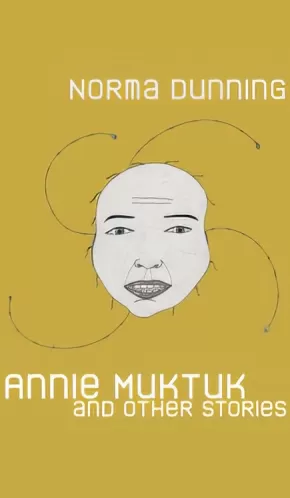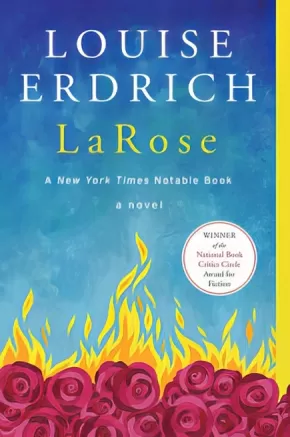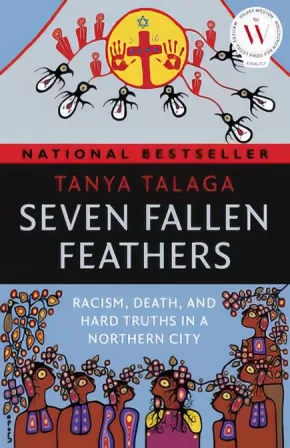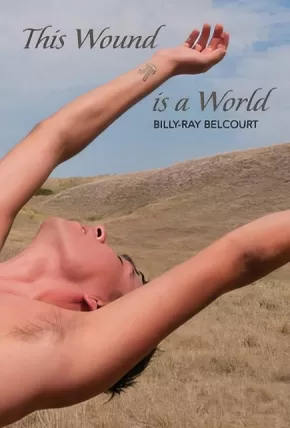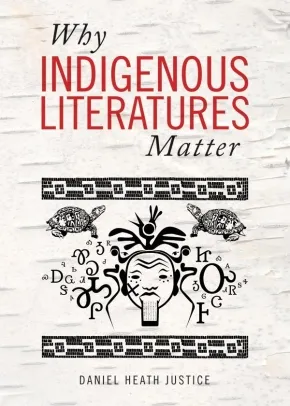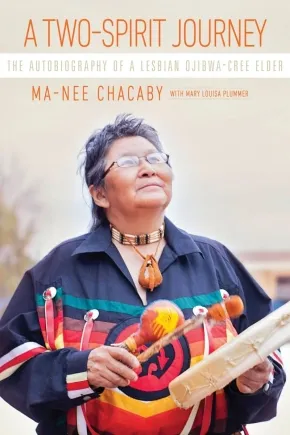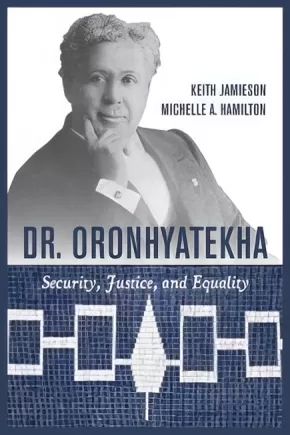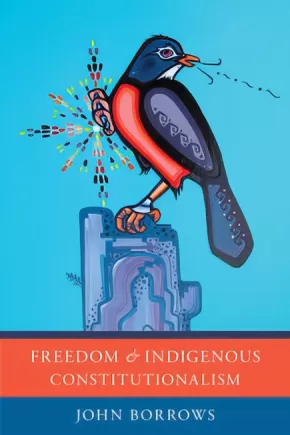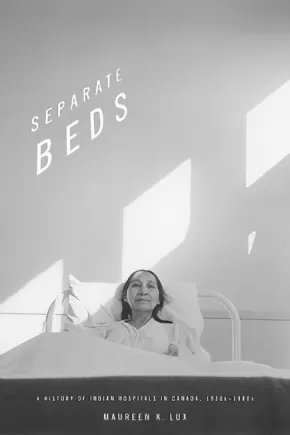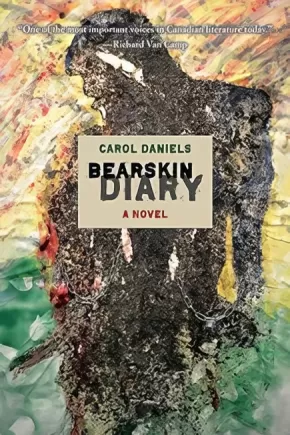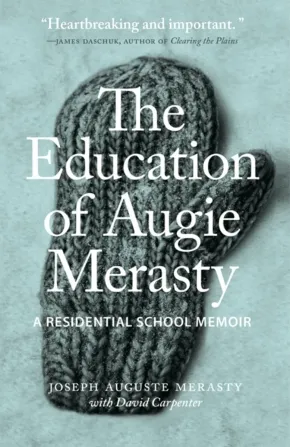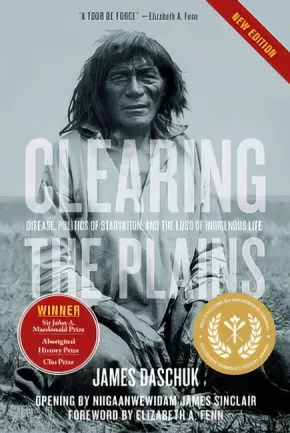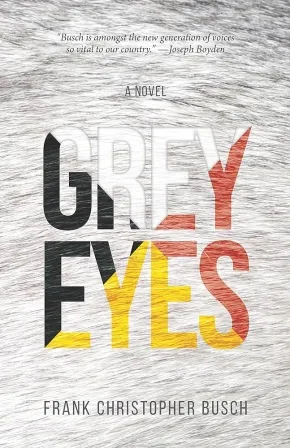Award-Winning
Synopsis:
I woke up with Moses Henry’s boot holding open my jaw and my right eye was looking into his gun barrel. I heard the slow words, “Take. It. Back.” I know one thing about Moses Henry; he means business when he means business. I took it back and for the last eight months I have not uttered Annie Mukluk’s name.
In strolls Annie Mukluk in all her mukiness glory. Tonight she has gone traditional. Her long black hair is wrapped in intu’dlit braids. Only my mom still does that. She’s got mukluks, real mukluks on and she’s wearing the old-style caribou parka. It must be something her grandma gave her. No one makes that anymore. She’s got the faint black eyeliner showing off those brown eyes and to top off her face she’s put pretend face tattooing on. We all know it’ll wash out tomorrow. — from "Annie Muktuk"
When Sedna feels the urge, she reaches out from the Land of the Dead to where Kakoot waits in hospital to depart from the Land of the Living. What ensues is a struggle for life and death and identity. In “Kakoot” and throughout this audacious collection of short stories, Norma Dunning makes the interplay between contemporary realities and experiences and Inuit cosmology seem deceptively easy. The stories are raucous and funny and resonate with raw honesty. Each eye-opening narrative twist in Annie Muktuk and Other Stories challenges readers’ perceptions of who Inuit people are.
Awards
- 2017-2018 Danuta Gleed Literary Award Winner
- 2018 INDIEFAB Book of the Year (Short Stories)
- 2018 Howard O'Hagan Award for Short Story
Reviews
"Dunning’s stories, nuanced and deeply felt, reach deep into the heart of what it means to be Inuit, into the sacred place where the songs of the north are still sung, visions are still seen, and the spirits still speak. From this place, it is possible to laugh at those who come to destroy. From this place, dignity is maintained and the connection to the turning of the seasons is unbroken. Together with grief for what has been lost, there is power and light in these stories." — Kristine Morris, Foreword Magazine, June 2017
"When I read the article, 'What inspired her was getting mad,' about the story behind Norma Dunning’s debut collection, Annie Mukluk and Other Stories, I was not surprised. Acts of justice and revenge factor throughout the book, propelling the stories so terrifically. Dunning wrote her stories in response to ethnographic representations of Inuit people that neglected to show them as actual people, and the result is a book that’s really extraordinary. Because her people are so real, people who laugh, and joke, and drink, and have sex (and they have a lot of sex)." — Kerry Clare, Pickle Me This, August 2017
"Although [Dunning] deals with serious contemporary realities for Inuit people, she manages to work in moments of humour that flesh out her characters, making them fully realized and complex.”— Matthew Stepanic, Where.ca, September 2017
"A successful short story takes us to unfamiliar places, and the 16 stories in this collection certainly fill that bill. It’s a journey deep into Inuit life, with tales of Inuk of all shapes, genders and ages. The title story is at turns funny, violent and cunning: Jimmy tries to convince best friend Moses to stay away from the glorious Annie Muktuk, an arnaluk (naughty woman, according to the glossary) who will cause him grief." — Sarah Murdoch, Toronto Star, November 2017
"This whole collection is fantastic, but the story with the bad trip is 'Husky', inspired by the life of trapper and HBC Factor "Husky" Harris whose visit to Winnipeg with his three Inuit wives, Tetuk, Alaq and Keenaq, is written about in history books. In the story, naturally, the group and their children make an impression at their hotel, and the racism of hotel staff leads to a fight that lands Husky in the hospital. The violence doesn't end there and the women are further victimized—but then they enact the most beautiful justice." — Kerry Clare, 49th Shelf, August 2017
"Inuk writer Norma Dunning’s debut collection passed under the radar of the big awards despite being the year’s best short fiction collection. The stories infuse Inuit myth with reality, explore the effects of colonialism, and delve into settler-writer portrayals of Inuit, all told with heart and humour that is infectious." — Michael Melgaard, National Post, December 2017
Additional Information
198 pages | 5.25" x 9.00"
Synopsis:
Winner of the National Book Critics Circle Award in Fiction
Finalist for the 2017 PEN Faulkner Award
In this literary masterwork, Louise Erdrich, the bestselling author of the National Book Award-winning The Round House and the Pulitzer Prize nominee The Plague of Doves wields her breathtaking narrative magic in an emotionally haunting contemporary tale of a tragic accident, a demand for justice, and a profound act of atonement with ancient roots in Native American culture.
North Dakota, late summer, 1999. Landreaux Iron stalks a deer along the edge of the property bordering his own. He shoots with easy confidence—but when the buck springs away, Landreaux realizes he’s hit something else, a blur he saw as he squeezed the trigger. When he staggers closer, he realizes he has killed his neighbor’s five-year-old son, Dusty Ravich.
The youngest child of his friend and neighbor, Peter Ravich, Dusty was best friends with Landreaux’s five-year-old son, LaRose. The two families have always been close, sharing food, clothing, and rides into town; their children played together despite going to different schools; and Landreaux’s wife, Emmaline, is half sister to Dusty’s mother, Nola. Horrified at what he’s done, the recovered alcoholic turns to an Ojibwe tribe tradition—the sweat lodge—for guidance, and finds a way forward. Following an ancient means of retribution, he and Emmaline will give LaRose to the grieving Peter and Nola. “Our son will be your son now,” they tell them.
LaRose is quickly absorbed into his new family. Plagued by thoughts of suicide, Nola dotes on him, keeping her darkness at bay. His fierce, rebellious new “sister,” Maggie, welcomes him as a coconspirator who can ease her volatile mother’s terrifying moods. Gradually he’s allowed shared visits with his birth family, whose sorrow mirrors the Raviches’ own. As the years pass, LaRose becomes the linchpin linking the Irons and the Raviches, and eventually their mutual pain begins to heal.
But when a vengeful man with a long-standing grudge against Landreaux begins raising trouble, hurling accusations of a cover-up the day Dusty died, he threatens the tenuous peace that has kept these two fragile families whole.
Inspiring and affecting, LaRose is a powerful exploration of loss, justice, and the reparation of the human heart, and an unforgettable, dazzling tour de force from one of America’s most distinguished literary masters.
Paperback: 400 pages
Physical Dimensions: 5.31" x 8.00"
Synopsis:
In 1966, twelve-year-old Chanie Wenjack froze to death on the railway tracks after running away from residential school. An inquest was called and four recommendations were made to prevent another tragedy. None of those recommendations were applied.
More than a quarter of a century later, from 2000 to 2011, seven Indigenous high school students died in Thunder Bay, Ontario. The seven were hundreds of miles away from their families, forced to leave home and live in a foreign and unwelcoming city. Five were found dead in the rivers surrounding Lake Superior, below a sacred Indigenous site. Jordan Wabasse, a gentle boy and star hockey player, disappeared into the minus twenty degrees Celsius night. The body of celebrated artist Norval Morrisseau’s grandson, Kyle, was pulled from a river, as was Curran Strang’s. Robyn Harper died in her boarding-house hallway and Paul Panacheese inexplicably collapsed on his kitchen floor. Reggie Bushie’s death finally prompted an inquest, seven years after the discovery of Jethro Anderson, the first boy whose body was found in the water.
Using a sweeping narrative focusing on the lives of the students, award-winning investigative journalist Tanya Talaga delves into the history of this small northern city that has come to manifest Canada’s long struggle with human rights violations against Indigenous communities.
A portion of each sale of Seven Fallen Feathers will go to the Dennis Franklin Cromarty Memorial Fund, set up in 1994 to financially assist Nishnawbe Aski Nation students’ studies in Thunder Bay and at post-secondary institutions.
Awards
- 2018-2019 First Nation Communities Read
- 2018 RBC Taylor Prize
Reviews
“Talaga has written Canada’s J’Accuse, an open letter to the rest of us about the many ways we contribute — through act or inaction — to suicides and damaged existences in Canada’s Indigenous communities. Tanya Talaga’s account of teen lives and deaths in and near Thunder Bay is detailed, balanced and heart-rending. Talaga describes gaps in the system large enough for beloved children and adults to fall through, endemic indifference, casual racism and a persistent lack of resources. It is impossible to read this book and come away unchanged.” — RBC Taylor Prize Jury Citation
“In Seven Fallen Feathers, Tanya Talaga delves into the lives of seven Indigenous students who died while attending high school in Thunder Bay over the first eleven years of this century. With a narrative voice encompassing lyrical creation myth, razor-sharp reporting, and a searing critique of Canada’s ongoing colonial legacy, Talaga binds these tragedies — and the ambivalent response from police and government — into a compelling tapestry. This vivid, wrenching book shatters the air of abstraction that so often permeates news of the injustices Indigenous communities face every day. It is impossible to read Seven Fallen Feathers and not care about the lives lost, the families thrust into purgatory, while the rest of society looks away.” — Hilary Weston Writers’ Trust Prize for Nonfiction Jury Citation
“[A]n urgent and unshakable portrait of the horrors faced by Indigenous teens going to school in Thunder Bay, Ontario, far from their homes and families. . . . Talaga’s incisive research and breathtaking storytelling could bring this community one step closer to the healing it deserves.” — Booklist, STARRED REVIEW
“Seven Fallen Feathers may prove to be the most important book published in Canada in 2017. Tanya Talaga offers well-researched, difficult truths that expose the systemic racism, poverty, and powerlessness that contribute to the ongoing issues facing Indigenous youth, their families, and their communities. It is a call to action that deeply honours the lives of the seven young people; our entire nation should feel their loss profoundly.” — Patti LaBoucane-Benson, author of The Outside Circle
“[W]here Seven Fallen Feathers truly shines is in Talaga’s intimate retellings of what families experience when a loved one goes missing, from filing a missing-persons report with police, to the long and brutal investigation process, to the final visit in the coroner’s office. It’s a heartbreaking portrait of an indifferent and often callous system . . . Seven Fallen Feathers is a must-read for all Canadians. It shows us where we came from, where we’re at, and what we need to do to make the country a better place for us all.” — The Walrus
Educator Information
The Canadian Indigenous Books for Schools list recommends this resource for Grade 12 English Language Arts and Social Studies.
Curriculum Connections: Indigenous Studies, History, Health
Additional Information
376 pages | 5.50" x 8.50" | 8-page colour insert and maps
Synopsis:
Part manifesto, part memoir, This Wound is a World is an invitation to “cut a hole in the sky to world inside.” Billy-Ray Belcourt issues a call to turn to love and sex to understand how Indigenous peoples shoulder sadness and pain like theirs without giving up on the future. His poems upset genre and play with form, scavenging for a decolonial kind of heaven where “everyone is at least a little gay.”
Awards
- 2018 Griffin Poetry Prize
- 2018 Indigenous Voices Award - Most Significant Work of Poetry in English
Reviews
"In This Wound is a World, love answers heartbreak, “history lays itself bare” (42) and a world glimmering with decolonial love and queer, Indigenous possibilities is split open. This is poetry at its brightest. It is electric, profound, necessary work. Belcourt bends genre, challenging the cage of colonialism through a poetics of intimacy. It is a collection unafraid to ask questions, exploring grief, desire, queer sexuality and Indigeneity with tender honesty. Belcourt asks us to consider the ways Indigenous bodies can be simultaneously unbound and “rendered again,” (40) how worlds can be made and unmade. These are poems to be returned to again and again with reverence." - PRISM International
Additional Information
64 pages | 6.00" x 9.00"
Synopsis:
Part survey of the field of Indigenous literary studies, part cultural history, and part literary polemic, Why Indigenous Literatures Matter asserts the vital significance of literary expression to the political, creative, and intellectual efforts of Indigenous peoples today. In considering the connections between literature and lived experience, this book contemplates four key questions at the heart of Indigenous kinship traditions: How do we learn to be human? How do we become good relatives? How do we become good ancestors? How do we learn to live together? Blending personal narrative and broader historical and cultural analysis with close readings of key creative and critical texts, Justice argues that Indigenous writers engage with these questions in part to challenge settler-colonial policies and practices that have targeted Indigenous connections to land, history, family, and self. More importantly, Indigenous writers imaginatively engage the many ways that communities and individuals have sought to nurture these relationships and project them into the future.
This provocative volume challenges readers to critically consider and rethink their assumptions about Indigenous literature, history, and politics while never forgetting the emotional connections of our shared humanity and the power of story to effect personal and social change. Written with a generalist reader firmly in mind, but addressing issues of interest to specialists in the field, this book welcomes new audiences to Indigenous literary studies while offering more seasoned readers a renewed appreciation for these transformative literary traditions.
Awards
- 2019 PROSE Award for Literature
Synopsis:
A compelling, harrowing, but ultimately uplifting story of resilience and self-discovery.
A Two-Spirit Journey is Ma-Nee Chacaby’s extraordinary account of her life as an Ojibwa-Cree lesbian. From her early, often harrowing memories of life and abuse in a remote Ojibwa community riven by poverty and alcoholism, Chacaby’s story is one of enduring and ultimately overcoming the social, economic, and health legacies of colonialism.
As a child, Chacaby learned spiritual and cultural traditions from her Cree grandmother and trapping, hunting, and bush survival skills from her Ojibwa stepfather. She also suffered physical and sexual abuse by different adults, and in her teen years became alcoholic herself. At twenty, Chacaby moved to Thunder Bay with her children to escape an abusive marriage. Abuse, compounded by racism, continued, but Chacaby found supports to help herself and others. Over the following decades, she achieved sobriety; trained and worked as an alcoholism counsellor; raised her children and fostered many others; learned to live with visual impairment; and came out as a lesbian. In 2013, Chacaby led the first gay pride parade in Thunder Bay.
Ma-Nee Chacaby has emerged from hardship grounded in faith, compassion, humour, and resilience. Her memoir provides unprecedented insights into the challenges still faced by many Indigenous people.
Awards
- 2025 Canada Reads winner
Reviews
“From groundbreaking and controversial AIDS awareness programs in the 1990s to the work she continues to do today, both with her own family and her extended reserve family, her life and this memoir ultimately serve as handbook of hope.” — Lara Rae, Winnipeg Free Press
"A Two-Spirit Journey is a raw and emotional story that doesn’t just show readers the author’s scars. Chacaby bares all in an honest telling of her life that includes flaws, like her struggles with substance abuse and a sometimes rocky path to sobriety. Despite the turmoil, the autobiography does have its uplifting moments and characters. Heartwarming stories of childhood friendships, and most importantly a powerful relationship between the author and her grandmother, weave feelings of optimism and hope into a life that is oftentimes surrounded by darkness.” — Scott Paradis, tbnewswatch.com
“An extraordinary account of an extraordinary life and very highly recommended for community and academic library Contemporary Biography, LGBT, and Native American Studies collections.” — Midwest Book Review
“Activist, survivor, mother, counsellor, Ma-Nee Chacaby recounts her sometimes harrowing life with a calm and steady voice, infused with resilience and compassion. Effectively designed and edited to appeal to both the general public and those engaged in Indigenous studies, A Two-Spirit Journey presents an important story, powerfully told.” — Nik Burton, Rick Walker, and Carolyn Wood, Judges, 2017 Manitoba Book Awards
“The story that Chacaby and Plummer recount is truly an extraordinary one, but it is also one that will resonate with many people whose stories have not been often told. The perspective of a lesbian Ojibwa-Cree elder is invaluable for LGBT Native youth and will be an enriching experience for many others, particularly those who have experienced abuse, disability, poverty, or the effects of colonization.” — Kai Pyle, Studies in American Indian Literatures
Educator Information
This book would be useful for courses in women's studies, social studies, and gender studies. Recommended for students in grade 12 or at a college/university level.
Caution: discussion of physical and sexual abuse.
This resource is also available in French: Un parcours bispirituel: Recit d'une ainee ojibwe-crie lesbienne.
Additional Information
256 pages | 6.00" x 9.00"
Synopsis:
A man of two cultures in an era where his only choices were to be a trailblazer or get left by the wayside.
Dr. Oronhyatekha (“Burning Sky”), born in the Mohawk nation on the Six Nations of the Grand River territory in 1841, led an extraordinary life, rising to prominence in medicine, sports, politics, fraternalism, and business. He was one of the first Indigenous physicians in Canada, the first to attend Oxford University, a Grand River representative to the Prince of Wales during the 1860 royal tour, a Wimbledon rifle champion, the chairman of the Grand General Indian Council of Ontario, and Grand Templar of the International Order of Good Templars. He counted among his friends some of the most powerful people of the day, including John A. Macdonald and Theodore Roosevelt. He successfully challenged the racial criteria of the Independent Order of Foresters to become its first non-white member and ultimately its supreme chief ranger.
At a time when First Nations peoples struggled under assimilative government policy and society’s racial assumptions, his achievements were remarkable.
Oronhyatekha was raised among a people who espoused security, justice, and equality as their creed. He was also raised in a Victorian society guided by God, honour, and duty. He successfully interwove these messages throughout his life, and lived as a man of significant accomplishments in both worlds.
Awards
2016 Ontario Historical Society Joseph Brant Award winner
2017 Speaker's Book Award short-listed
Review
With their detailed biography of this giant of Canadian history, Jamieson and Hamilton have done an enormous favour both for aboriginals and non-aboriginals living on this piece of geography currently known as Canada.
— Tworowtimes
Key Points
- A comprehensive biography of Dr. Oronhyatekha, Canada’s first Indigenous physician, and an influential First Nations statesman.
- Covers his friendships with Teddy Roosevelt and John A. Macdonald and his international business.
- He was the first non-White member of the Independent Order of Foresters (IOF), a fraternally organized life-insurance company, having successfully challenged the race criteria for membership.
- As CEO of the IOF, he transformed it from a near-bankrupt, legally embattled organization to a financially stable international company.
- Ahead of his time, Oronhyatekha attempted to broaden the mandate of the IOF so that women and French-Canadians could belong.
- Also details the political, social, and historical context of the Six Nations of the Grand River community in the mid-nineteenth century.
Additional Information
368 pages | 6.00" x 9.00" | b&w and colour illustrations | notes, index, bibliography
Synopsis:
Indigenous traditions can be uplifting, positive, and liberating forces when they are connected to living systems of thought and practice. Problems arise when they are treated as timeless models of unchanging truth that require unwavering deference and unquestioning obedience. Freedom and Indigenous Constitutionalism celebrates the emancipatory potential of Indigenous traditions, considers their value as the basis for good laws and good lives, and critiques the failure of Canadian constitutional traditions to recognize their significance.
Demonstrating how Canada’s constitutional structures marginalize Indigenous peoples’ ability to exercise power in the real world, John Borrows uses Ojibwe law, stories, and principles to suggest alternative ways in which Indigenous peoples can work to enhance freedom. Among the stimulating issues he approaches are the democratic potential of civil disobedience, the hazards of applying originalism rather than living tree jurisprudence in the interpretation of Aboriginal and treaty rights, American legislative actions that could also animate Indigenous self-determination in Canada, and the opportunity for Indigenous governmental action to address violence against women.
Awards
- 2017 Donald Smiley Prize awarded by the Canadian Political Science Association joint winner
Reviews
"This remarkable work is at once challenging and accessible, philosophical and practical, and wide-ranging while firmly rooted in Anishinaabe tradition. Borrows takes a realistic, creative, and intellectually rigorous approach to some of the most difficult and pressing issues in Indigenous law, constitutional law, and political philosophy, as well as all readers who wish to better understand the relationship between indigenous peoples and Canada."— Katherine Starks, Saskatchewan Law Review
Additional Information
384 pages | 5.98" x 8.99"
Synopsis:
Separate Beds is the shocking story of Canada’s system of segregated health care. Operated by the same bureaucracy that was expanding health care opportunities for most Canadians, the “Indian Hospitals” were underfunded, understaffed, overcrowded, and rife with coercion and medical experimentation. Established to keep the Aboriginal tuberculosis population isolated, they became a means of ensuring that other Canadians need not share access to modern hospitals with Aboriginal patients.
Tracing the history of the system from its fragmentary origins to its gradual collapse, Maureen K. Lux describes the arbitrary and contradictory policies that governed the “Indian Hospitals,” the experiences of patients and staff, and the vital grassroots activism that pressed the federal government to acknowledge its treaty obligations.
A disturbing look at the dark side of the liberal welfare state, Separate Beds reveals a history of racism and negligence in health care for Canada’s First Nations that should never be forgotten.
Awards
- 2017 Aboriginal History Book Prize awarded by the Canadian Historical Association winner
- 2017 Jason A. Hannah Medal awarded by The Royal Society of Canada winn
Reviews
"In painstaking research and matter-of-fact reportage, Associate Professor Lux of Brock University documents Canadian apartheid. Separate Beds: A History of Indian Hospitals In Canada is a riveting and extraordinary account of mistreatment of citizens." — Tom Korski, Blacklocks Reporter, Saturday, June 4, 2016
‘Lux’s detailed account will surely be of interest to scholars of Aboriginal history and health care as well as to the people interested in the development of Indian hospitals in Canada.’ — Joanne DeCosse, Canada’s History October-November 2016
‘This is a must read for anyone interested in the history of Canadian Healthcare, Aboriginal health and treaty rights.’ — Velvet Maud, The Canadian Journal of Native Studies vol 36:02:2016
Additional Information
288 pages | 6.00" x 8.98" | Paperback
Synopsis:
When Stella, a young Métis mother, looks out her window one evening and spots someone in trouble on the Break — a barren field on an isolated strip of land outside her house — she calls the police to alert them to a possible crime.
In a series of shifting narratives, people who are connected, both directly and indirectly, with the victim — police, family, and friends — tell their personal stories leading up to that fateful night. Lou, a social worker, grapples with the departure of her live-in boyfriend. Cheryl, an artist, mourns the premature death of her sister Rain. Paulina, a single mother, struggles to trust her new partner. Phoenix, a homeless teenager, is released from a youth detention centre. Officer Scott, a Métis policeman, feels caught between two worlds as he patrols the city. Through their various perspectives a larger, more comprehensive story about lives of the residents in Winnipeg’s North End is exposed.
A powerful intergenerational family saga, The Break showcases Vermette’s abundant writing talent and positions her as an exciting new voice in Canadian literature.
Awards
- 2017 Burt Award for First Nations, Inuit, and Métis Literature Winner
- Margaret Laurence Award for Fiction Winner
- McNally Robison Book of the Year Winner
- Amazon.ca First Novel Award
Reviews
“Vermette is a staggering talent. Reading The Break is like a revelation; stunning, heartbreaking and glorious. From her exquisitely rendered characters to her fully realized world and the ratcheting tension, I couldn’t put it down. Absolutely riveting.” — Eden Robinson, author of Monkey Beach
“In Vermette’s poetic prose, The Break offers a stark portrayal of the adversity that plagues First Nations women in this country — and the strength that helps them survive.” — Toronto Star
“The Break doesn’t read like an impressive first novel; it reads like a masterstroke from someone who knows what they’re doing . . . Vermette is skilled at writing with a language that is conversational and comfortable and with a poetic ease that makes the hard things easier to swallow. The result is a book that is at times emotionally demanding, funny, suspenseful, and always engaging.”—The Winnipeg Review
“This is a debut novel by the Governor General's Literary Award-winning Métis poet Katherena Vermette. The story takes place in Winnipeg's North End. And it starts when Stella thinks she sees a violent assault taking place in a barren strip of land outside her window, known as The Break. Turns out, she is right. In fact, there is a threat of violence that hovers over all the women in the story, three generations of them, and the story is told in many voices. Katherena writes with empathy and understanding about people who are living with the pain of intergenerational trauma. The Winnipeg winter she evokes is cold and cruel. But there is such love, loyalty and support in this story. If you enjoy a gripping family saga, I would recommend The Break.” — Shelagh Rogers, CBC The Next Chapter
Educator Information
Grades 11-12 BC English First Peoples resource for the unit What Creates Family?
The Canadian Indigenous Books for School list recommends this resource for Grades 10-12 English Language Arts.
Curriculum Connections: English, Indigenous Studies, Anthropology
Note: This novel contains mature and challenging content, such as incidents of drug use, rape, and, violence.
Additional Information
288 pages | 5.25" x 8.00"
Synopsis:
In 2017-2018, Bearskin Diary was the award recipient for First Nation Communities Read.
Raw and honest, Bearskin Diary gives voice to a generation of First Nations women who have always been silenced, at a time when movements like Idle No More call for a national inquiry into the missing and murdered Aboriginal women. Carol Daniels adds an important perspective to the Canadian literary landscape.
Taken from the arms of her mother as soon as she was born, Sandy was only one of over twenty thousand Aboriginal children scooped up by the federal government between the 1960s and 1980s. Sandy was adopted by a Ukrainian family and grew up as the only First Nations child in a town of white people. Ostracized by everyone around her and tired of being different, at the early age of five she tried to scrub the brown off her skin. But she was never sent back into the foster system, and for that she considers herself lucky.
From this tragic period in her personal life and in Canadian history, Sandy does not emerge unscathed, but she emerges strong--finding her way by embracing the First Nations culture that the Sixties Scoop had tried to deny. Those very roots allow Sandy to overcome the discriminations that she suffers every day from her co-workers, from strangers and sometimes even from herself.
Additional Information
|
Synopsis:
The Education of Augie Merasty offers a courageous and intimate chronicle of life in a residential school.
Now a retired fisherman and trapper, Joseph A. (Augie) Merasty was one of an estimated 150,000 First Nations, Inuit, and Metis children who were taken from their families and sent to government-funded, church-run schools, where they were subjected to a policy of "aggressive assimiliation."As Merasty recounts, these schools did more than attempt to mold children in the ways of white society. They were taught to be ashamed of their native heritage and, as he experienced, often suffered physical and sexual abuse.Even as he looks back on this painful part of his childhood, Merasty’s generous and authentic voice shines through.
Awards
- 2016 Burt Award Second Place Winner
Reviews
"At 86, Augie Merasty has been a lot of things: Father. Son. Outdoorsman. Homeless. But now he is a first-time author, and the voice of a generation of residential-school survivors.... The Education of Augie Merasty is the tale of a man not only haunted by his past, but haunted by the fundamental need to tell his own story... one of the most important titles to be published this spring." —Globe and Mail
"[Augie] wrote his memoir to show people the unbelievable atrocities suffered by so many Indigenous people and in the hope that others would come forward to tell their stories of what happened in the residential schools." —Eagle Feather News
"This book is so much bigger than its small size. It is a path to healing. We cannot change history, but we can acknowledge it, learn about it, and remember it." —Prairies North
"The Education of Augie Merasty might be a small book, but it carries a punch to it that all Canadian need to read and understand." —Rabble
"A truly extraordinary memoir by a truly extraordinary man." —Midwest Book Review
"Carpenter's introduction and afterword... allow us to come to better understand Augie's 'sometimes chaotic, sometimes heroic aftermath of his life,' as Carpenter describes his last decade. Where Augie focuses on physical scars, Carpenter's experiences with Augie illustrate the long-term impacts on his residential school experience. And with The Education of Augie Merasty, he helps Merasty--who could be any number of individuals we each pass on the street--find his voice." —Active History
"Unsettling and profound, and good." —Blacklock's Reporter
"In this book I have seen horror through eyes of a child." —James Daschuk, author of Clearing the Plains
"A story in which our entire nation has an obscure and dark complicity." —David Carpenter, co-author of The Education of Augie Merasty and author of The Gold and other books
Educator Information
The Canadian Indigenous Books for Schools list recommends this resource for Grades 9-12 English Language Arts and Social Studies.
Caution: Mature subject matter and descriptions of discrimination, sexual/physical violence, and substance abuse.
Additional Information
105 pages | 4.25" x 6.53" | Hardcover
Synopsis:
A Canadian bestseller and winner of the 2016 Canadian Historical Association Aboriginal History Book Prize, Unsettling Canada is a landmark text built on a unique collaboration between two First Nations leaders.
Arthur Manuel (1951-2017) was one of the most forceful advocates for Indigenous title and rights in Canada; Grand Chief Ron Derrickson, one of the most successful Indigenous businessmen in the country. Together, they bring a fresh perspective and bold new ideas to Canada's most glaring piece of unfinished business: the place of Indigenous peoples within the country's political and economic space.
This vital second edition features a foreword by award-winning activist Naomi Klein and an all-new chapter co-authored by law professor Nicole Schabus and Manuel's son, Ska7cis, honouring the multi-generational legacy of the Manuel family's work.
Reviews
“Pragmatic and helpful, this is a timely book for our fraught and political moment” — Quill & Quire
"Unsettling Canada is a breathtakingly beautiful story of Indigenous resistance, strength, and movement building. Unsettling Canada echoes the power of George Manuel's The Fourth World, centering the heart of the narrative deep inside a kind of Indigenous intelligence rarely shared outside our communities. This is the critical conversation that Canada and Indigenous peoples must have because it is centred on land, and, therefore, it is one of the most important books on Indigenous politics I've ever read." — Leanne Betasamosake Simpson, author of Dancing on Our Turtle's Back
Educator Information
This resource would be useful for courses in history, social justice, political science, and social studies. Recommended for students in grades 10 to 12 or those at a college/university level.
Additional Information
320 pages | 6.00" x 9.00"
Synopsis:
Revealing how Canada's first Prime Minister used a policy of starvation against Indigenous people to clear the way for settlement, the multiple award-winning Clearing the Plains sparked widespread debate about genocide in Canada.
In arresting, but harrowing, prose, James Daschuk examines the roles that Old World diseases, climate, and, most disturbingly, Canadian politics—the politics of ethnocide—played in the deaths and subjugation of thousands of Indigenous people in the realization of Sir John A. Macdonald’s "National Dream."
It was a dream that came at great expense: the present disparity in health and economic well-being between Indigenous and non-Indigenous populations, and the lingering racism and misunderstanding that permeates the national consciousness to this day.
This new edition of Clearing the Plains has a foreword by Pulitzer Prize winning author, Elizabeth Fenn, an opening by Niigaanwewidam James Sinclair, and explanations of the book’s influence by leading Canadian historians. Called “one of the most important books of the twenty-first century” by the Literary Review of Canada, it was named a “Book of the Year” by The Globe and Mail, Quill & Quire, the Writers’ Trust, and won the Sir John A. Macdonald Prize, among many others.
Reviews
"Clearing the Plains is a tour de force that dismantles and destroys the view that Canada has a special claim to humanity in its treatment of indigenous peoples. Daschuk shows how infectious disease and state-supported starvation combined to create a creeping, relentless catastrophe that persists to the present day. The prose is gripping, the analysis is incisive, and the narrative is so chilling that it leaves its reader stunned and disturbed. For days after reading it, I was unable to shake a profound sense of sorrow. This is fearless, evidence-driven history at its finest." —Elizabeth A. Fenn, author of Pox Americana
"Required reading for all Canadians." —Candace Savage, author of A Geography of Blood
"Clearly written, deeply researched, and properly contextualized history...Essential reading for everyone interested in the history of indigenous North America." —J.R. McNeill, author of Mosquito Empires
Additional Information
386 pages | 6.00" x 9.00" | 25 b&w photos, 7 maps and figures | Paperback
Synopsis:
In a world without time and steeped in ceremony and magic, walks a chosen few who hold an ancient power: the Grey Eyes. True stewards of the land, the Grey Eyes use their magic to maintain harmony and keep evil at bay. With only one elderly Grey-Eye left in the village of the Nehiyawak, the birth of a new Grey-Eyed boy promises a renewed line of defence against their only foe: the menacing Red-Eyes, whose name is rarely spoken but whose presence is ever felt. While the birth of the Grey-Eyed boy offers the clan much-needed protection, it also initiates a struggle for power that threatens to rip the clan apart, leaving them defenceless against the their sworn ememy. The responsibility of restoring balance and harmony, the only way to keep the Nehiyawak safe, is thrust upon a boy’s slender shoulders. What powers will he have, and can he protect the clan from the evil of the Red Eyes?
Awards
- 2015 Burd Award - Second Place Winner
Additional Information
328 pages | 5.50" x 8.50"

